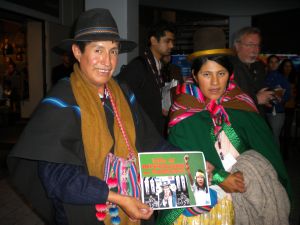Climate change discussions on forests issues have centred on emissions and finance. Deforestation accounts for up to 20 per cent of total greenhouse gas emissions and forest-rich countries such as Brazil demand compensation if they are to stop cutting down trees to grow crops or build new roads and power plants. The money being discussed is to the tune of US$ 15-25 billion.
Somewhere in the preoccupation with forest gases and cash; the actual forest dwellers, far removed from international climate politics, have escaped attention.
A book released by the Centre for International Forestry Research (CIFOR), Realizing REDD+, at COP-15 last week says involving local communities, rather than alienating them, can go a long way in improving the efficiency of REDD projects. For example, giving subsidies on fuel-efficient stoves for local communities could help them turn away from cutting forests for fire wood.
Some of the more successful REDD projects indicate that involving local communities in setting up systems for monitoring, reporting and verification (MRV) helps produce “accurate data at lower cost while improving transparency on carbon inventories”.
While advanced remote sensing techniques provide valuable data on forest cover, it needs to be supplemented with observations on ground, and who better than the local communities to aid you in that?
In Bolivia, for example, a federation of indigenous groups is undertaking a REDD demonstration project covering more than six million hectares.
All this also means the forest communities are paid for the services they provide, which in turn ensures strong incentives for forest users and those responsible for cutting emissions are compensated directly, points out CIFOR scientist Arild Angelsen.
How much protection indigenous forest communities will receive in any final outcome of Copenhagen will be known in just one day.
Laura Garcia Oviedo, Latin America contributor



You must be logged in to post a comment.